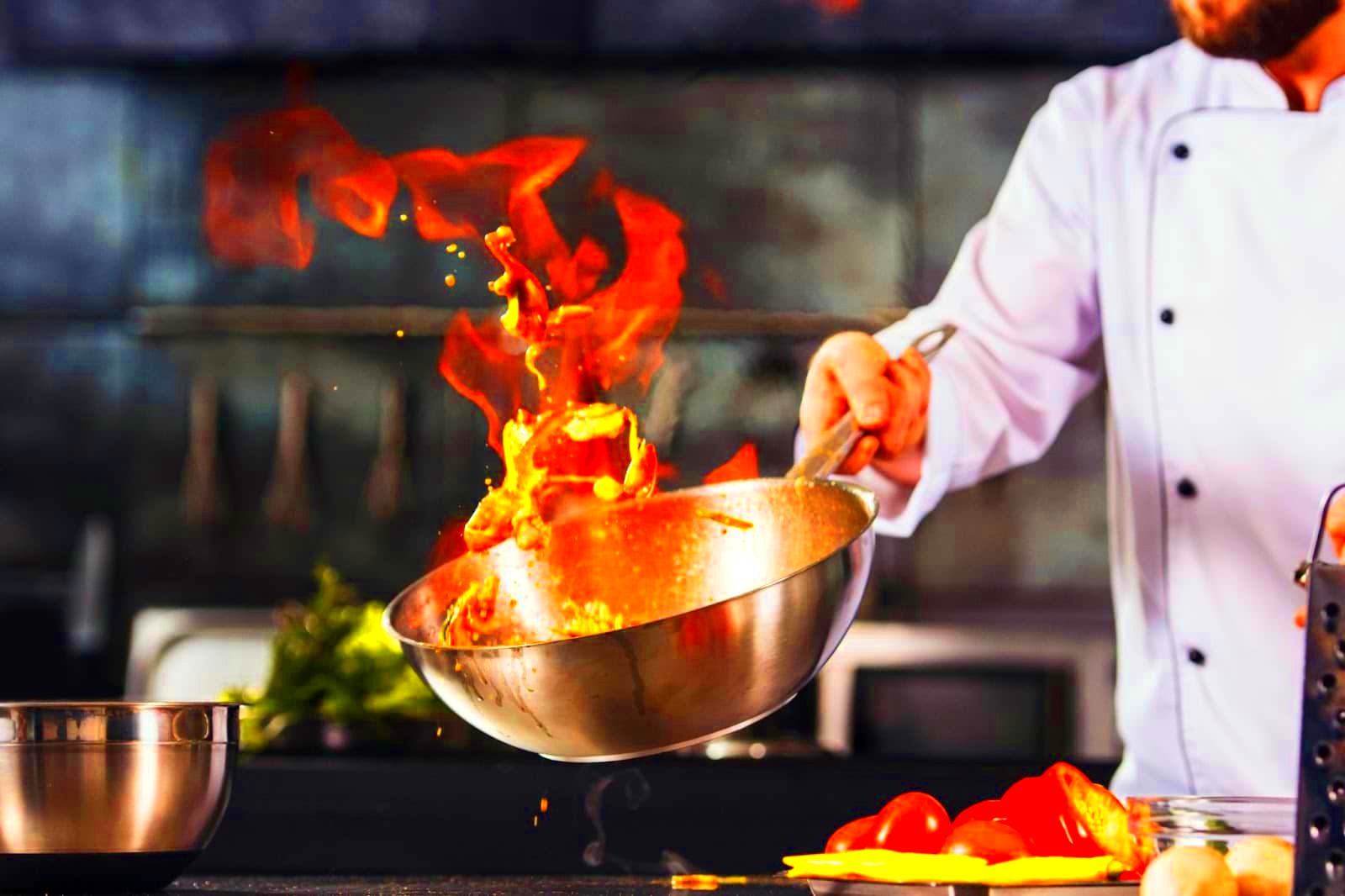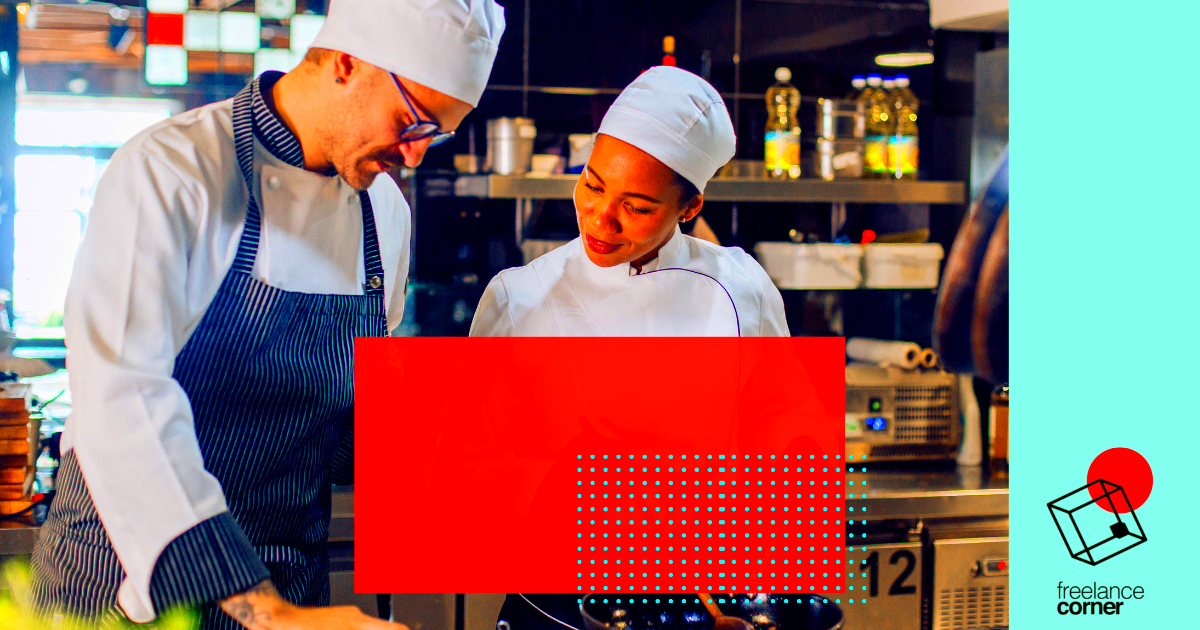Freelance cooking is an exciting opportunity for culinary enthusiasts to turn their passion into a profession. Whether you are a trained chef or a talented home cook, this path allows you to work on your terms and showcase your skills to a wider audience. You can cater events, provide personal chef services, or even conduct cooking classes. The flexibility of freelance cooking means you can choose your clients, set your schedule, and explore various culinary styles. If you're considering this journey, it's important to understand the fundamentals of freelance cooking and how to succeed in this dynamic field.
Understanding the Role of a Freelance Chef

As a freelance chef, your role goes beyond just cooking. You are responsible for:
- Catering Events: Preparing food for weddings, parties, and corporate events.
- Personal Chef Services: Cooking for individuals or families, often on a regular basis.
- Cooking Classes: Teaching others how to cook through classes or workshops.
- Menu Development: Creating customized menus based on clients' preferences and dietary needs.
Freelance chefs must also manage their own business operations, which include marketing their services, handling finances, and building a strong client base. Networking and word-of-mouth referrals are crucial for success in this field.
Also Read This: How to Submit a Feedback Dispute on Fiverr
Essential Skills for a Freelance Chef

To thrive as a freelance chef, you should develop a range of skills:
- Culinary Skills: Master various cooking techniques and cuisines.
- Time Management: Organize your time effectively to meet deadlines and manage multiple clients.
- Creativity: Design unique dishes and menus that impress your clients.
- Communication: Interact with clients to understand their needs and preferences.
- Business Acumen: Manage your finances, marketing, and client relations.
Additionally, having a solid understanding of food safety and sanitation practices is crucial to ensure the well-being of your clients and maintain your professional reputation.
Also Read This: How to Be Successful on Fiverr
Building Your Culinary Portfolio

Your culinary portfolio is like a resume for chefs. It showcases your skills, style, and the range of services you offer. A well-crafted portfolio can help you attract clients and stand out in a competitive market. Here are some key elements to include:
- Photographs of Your Dishes: High-quality images are essential. Take photos of your best dishes in good lighting to highlight their appeal.
- Sample Menus: Create a few sample menus that reflect your culinary style. Make sure they cater to various dietary needs.
- Testimonials: Include feedback from previous clients. Positive reviews can build trust and credibility.
- Cooking Experience: List your culinary education, relevant training, and any professional experience. Highlight specific roles, such as catering or personal chef work.
- Social Media Links: If you have a culinary blog or active social media accounts, include these links to showcase your online presence.
Remember to keep your portfolio updated. As you gain more experience and develop new recipes, refresh your portfolio to reflect your growth as a chef. You want to show potential clients what you can do now, not just what you did in the past.
Also Read This: What Happens When You Block Someone on Fiverr?
Finding Your Target Market
Identifying your target market is crucial for your freelance cooking business. Knowing who your ideal clients are helps you tailor your services to meet their needs. Here’s how to find your target market:
- Define Your Niche: Think about what type of cooking you enjoy most. Do you specialize in healthy meals, gourmet cuisine, or ethnic dishes? This will help narrow down your audience.
- Research Local Demand: Look into the food trends in your area. Are there many events, parties, or busy families looking for personal chefs?
- Use Social Media: Platforms like Instagram and Facebook can give you insight into what people are looking for. Engage with local food communities and observe what attracts attention.
- Attend Local Events: Farmers' markets, food festivals, and community events are great places to network and meet potential clients.
- Ask for Referrals: Existing clients can help you connect with new ones. Don’t hesitate to ask satisfied customers to recommend you to friends.
By understanding your target market, you can tailor your marketing efforts and create services that appeal directly to their tastes and needs.
Also Read This: How to Cancel an Order on Fiverr: A Step-by-Step Guide
Setting Your Rates as a Freelance Chef
Setting your rates as a freelance chef can feel challenging, but it’s important to ensure that you are compensated fairly for your skills and services. Here are some factors to consider when determining your pricing:
- Cost of Ingredients: Calculate the cost of ingredients you will need for each service. Factor this into your pricing to ensure you cover your expenses.
- Time and Labor: Consider how long each service will take, including preparation and clean-up. Your time is valuable, so make sure your rates reflect that.
- Market Research: Look at what other freelance chefs in your area charge. This can give you a benchmark to set your rates.
- Experience and Skills: If you have specialized training or extensive experience, you can justify higher rates. Don’t undervalue your expertise.
- Service Type: Different services may warrant different pricing. For example, a catered event may be priced higher than a one-time cooking session.
It’s also helpful to offer package deals or discounts for repeat clients. This can encourage loyalty and create a steady stream of income. Remember to review and adjust your rates regularly as you gain experience and your business evolves.
Also Read This: Can We Change Username on Fiverr?
Marketing Yourself as a Freelance Chef
Marketing is key to growing your freelance cooking business. It’s all about getting your name out there and showcasing your culinary talents. Here are some effective strategies to market yourself:
- Create a Professional Website: Having a website gives you a platform to showcase your portfolio, list your services, and provide contact information. Ensure it’s visually appealing and easy to navigate.
- Utilize Social Media: Platforms like Instagram, Facebook, and TikTok are great for sharing photos of your dishes, cooking videos, and behind-the-scenes content. Engage with your audience by responding to comments and sharing tips.
- Join Local Food Groups: Participate in local cooking classes or food-related events to network with potential clients. Being active in these communities can help you gain referrals.
- Offer Promotions: Consider running special promotions for new clients or discounts for referrals. This can encourage people to try your services.
- Collaborate with Other Businesses: Partner with event planners, wedding venues, or local farms to cross-promote your services. This can expand your reach significantly.
Consistency is essential. Regularly update your marketing materials, respond to inquiries promptly, and always keep an eye on the trends in the culinary world to stay relevant.
Also Read This: How to Get a Refund from Fiverr
Tips for Managing Your Freelance Business
Running a freelance business requires more than just culinary skills; it also demands good management practices. Here are some helpful tips:
- Stay Organized: Use tools like calendars, to-do lists, or project management apps to keep track of client requests, appointments, and deadlines.
- Keep Detailed Records: Maintain accurate records of your income, expenses, and client communications. This will help during tax season and when evaluating your business performance.
- Set Clear Boundaries: Establish your working hours and communicate them to clients. This helps maintain a healthy work-life balance.
- Invest in Quality Equipment: Good tools make cooking easier and more enjoyable. Invest in quality kitchen equipment to enhance your efficiency.
- Continuously Improve: Take cooking classes or attend workshops to enhance your skills and keep your culinary knowledge fresh. Stay curious and open to new techniques and trends.
Lastly, remember to network and connect with other freelancers. Sharing experiences and tips can provide valuable insights into managing your business effectively.
Also Read This: How to Write on Fiverr: A Comprehensive Guide
FAQs about Freelancing as a Chef
As you consider becoming a freelance chef, you might have some questions. Here are some common FAQs:
- Do I need formal culinary training? While formal training can be beneficial, it is not a requirement. Many successful freelance chefs are self-taught and have honed their skills through experience.
- How do I find clients? Start by networking, using social media, and leveraging word-of-mouth referrals. Local events and cooking classes can also help you connect with potential clients.
- What should I include in my contracts? Your contracts should outline the scope of work, payment terms, cancellation policies, and any special requests from the client.
- How can I stand out in a competitive market? Focus on your unique selling points, such as specialized cuisines, exceptional service, or unique presentation styles. Highlight these in your marketing materials.
- What are some common challenges freelance chefs face? Challenges include managing client expectations, finding consistent work, and dealing with the business side of freelancing, such as taxes and marketing.
By addressing these questions and staying informed, you can navigate the world of freelance cooking with confidence and success.
Conclusion on Starting Your Freelance Chef Journey
Starting your journey as a freelance chef can be both exciting and rewarding. By understanding your role, building a strong portfolio, and effectively marketing your services, you set the stage for a successful career. Embrace the challenges and joys that come with freelancing, and remember that continuous learning and adaptability are key to thriving in this dynamic industry. With passion and dedication, you can create a fulfilling career that showcases your culinary skills while allowing you the freedom to work on your own terms.




